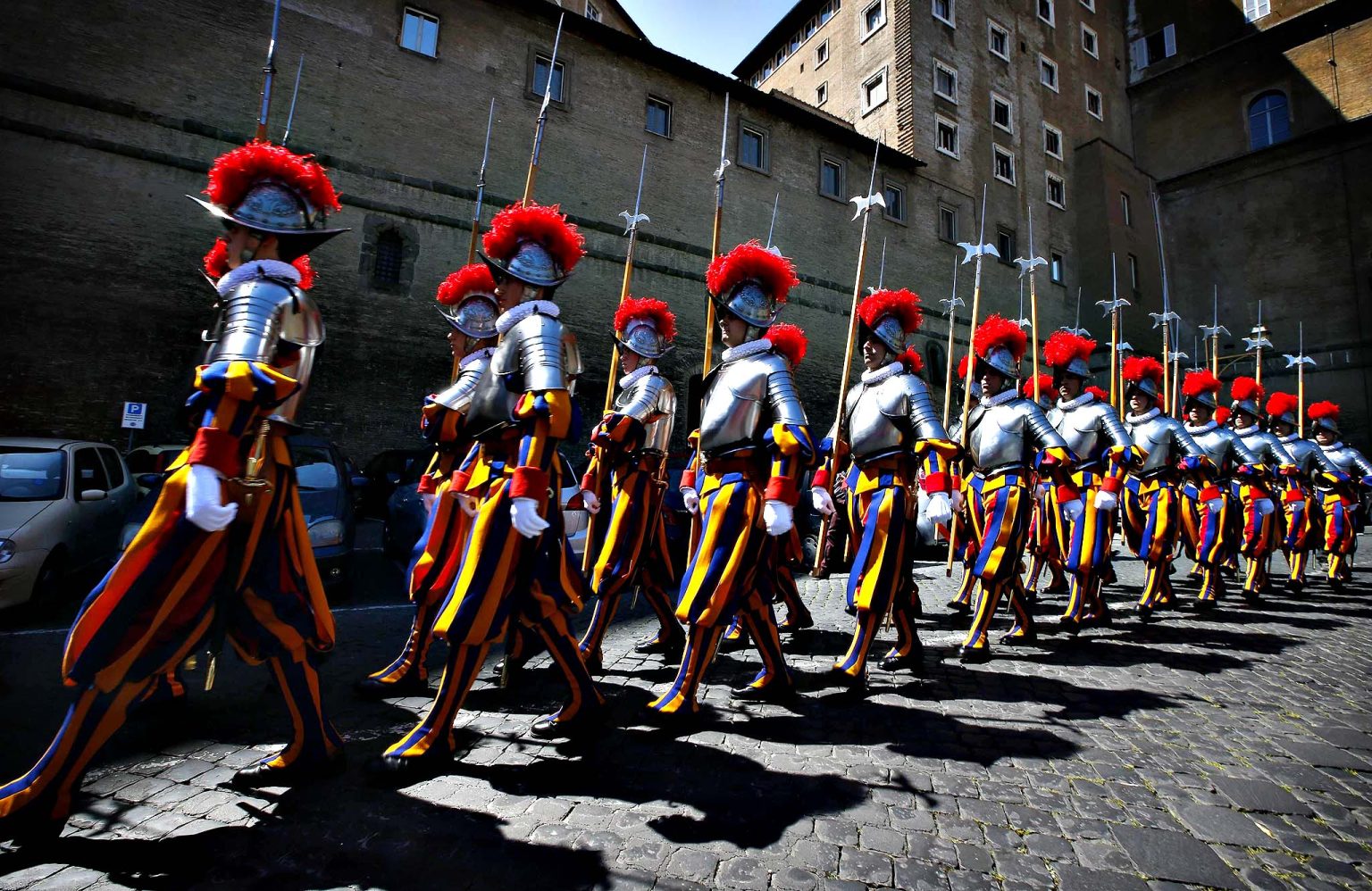A member of the Vatican’s Swiss Guards, the small but historic corps charged with protecting the pope, is under investigation following allegations that he directed a spitting gesture towards two Jewish women during a papal audience at St Peter’s Square.
The incident is said to have occurred on 29 October at one of the side entrances to the square, where crowds had gathered for Pope Leo’s general audience. The occasion marked the 60th anniversary of Nostra aetate, the landmark declaration that reshaped the Catholic Church’s relations with non-Christian religions, particularly Judaism.
Michal Govrin, a Tel Aviv-based author and theatre director, told the Austrian Catholic news agency Kathpress that she and another woman were subjected to contemptuous behaviour by a Swiss Guard as they entered the square. According to Govrin, the guard hissed at them, uttering the words “les juifs” (“the Jews”) with disdain. When challenged, she alleged, he proceeded to make a spitting gesture in their direction. Govrin was accompanied by Vivian Liska, director of the Institute of Jewish Studies in Antwerp.
The Swiss Guards confirmed that the individual concerned has been placed under internal investigation. Corporal Eliah Cinotti, a spokesperson for the corps, stated that such inquiries are standard procedure to ensure the professionalism of guards on duty. He emphasised that the Swiss Guard “completely distances itself from any form of antisemitism”. Cinotti suggested the incident may have stemmed from a request for a photograph of the guard, though he did not elaborate further.
The alleged behaviour has drawn particular attention given the context of the gathering. Pope Leo, who succeeded Pope Francis in May following Francis’s death, used the audience to underline the Church’s rejection of antisemitism. He reminded those present that the first focus of Nostra aetate was directed towards the Jewish people, and reiterated the 1965 document’s repudiation of the centuries-old charge that Jews collectively bore responsibility for the death of Christ.
“The Catholic Church decries hatred, persecutions, displays of antisemitism, directed against Jews at any time and by anyone,” Pope Leo declared. His remarks were widely interpreted as a continuation of the Church’s efforts to strengthen dialogue with Jewish communities and to confront prejudice within its own ranks.
The episode has inevitably evoked comparisons with the stance of Pope Francis, who during his papacy consistently condemned antisemitism while also expressing solidarity with Palestinians. Francis’s outspoken criticism of Israel’s military actions in Gaza, including his call for an investigation into whether they amounted to genocide, drew sharp rebukes from the Israeli government. His death in April left a legacy of strong engagement with issues of interfaith relations and international conflict.
The Vatican has not yet issued a formal statement beyond the Swiss Guard’s confirmation of the inquiry. However, observers note that the matter touches upon sensitive themes at the heart of Catholic-Jewish relations, particularly at a time when the Church is commemorating six decades since Nostra aetate.
For many, the alleged incident underscores the continuing importance of vigilance against antisemitism, even within institutions that have publicly committed themselves to reconciliation and respect. The outcome of the investigation will be closely watched, both within the Vatican and among Jewish communities worldwide.



